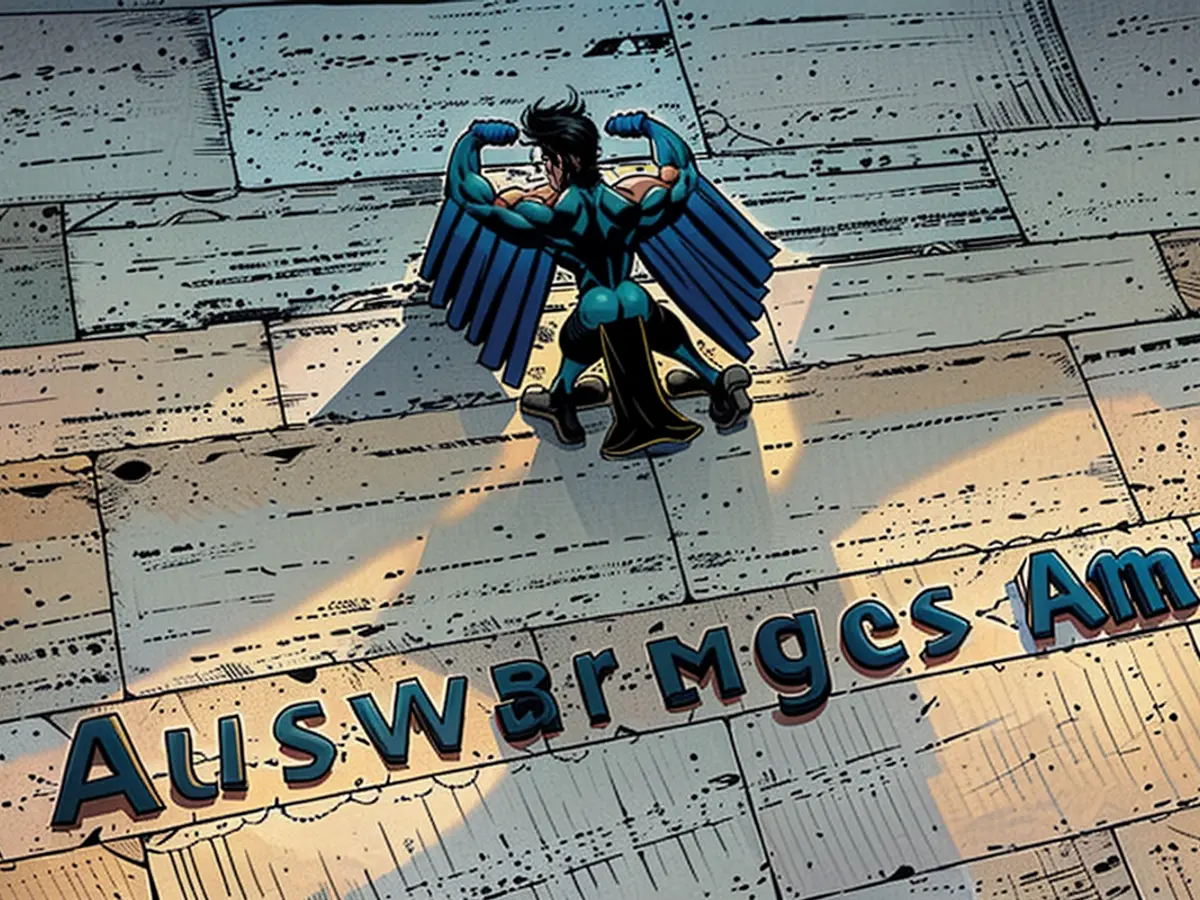- The German government has also been involved in the negotiations on the new nuclear power plant.
The most important ally of Israel is the United States, yet in light of the Iranian threat, a debate has now also erupted in Germany about possible military support. The chairman of the Defense Committee of the Bundestag, Marcus Faber, views the deployment of the Bundeswehr in the Middle East conflict skeptically. Germany should help Israel, for example by quickly approving arms exports, said the FDP politician to the editorial network Germany (RND). However, he added: "The Bundeswehr in Israel was not asked and could help little."
The CDU foreign policy expert Roderich Kiesewetter had previously called for the federal government to offer Israel military assistance in the event of an impending Iranian attack. His party colleague Johann Wadephul sees this differently. "Scenarios like military support are not on the agenda as far as we know. In any case, a Bundestag mandate would be necessary for this," said the deputy chairman of the Union faction to RND.
The new crisis in the Middle East was triggered by two deadly attacks last week on leading members of Hamas and Hezbollah. In the early hours of Wednesday, an explosion in a guesthouse room of the Iranian government in Tehran killed the foreign chief of the Islamic Hamas, Ismail Haniyeh. A few hours earlier, the high-ranking Hezbollah commander Fuad Schukr was killed in a air strike in the Lebanese capital Beirut. Israel claimed responsibility for the attack on Schukr, but there have been no official statements of this kind from Jerusalem so far. Iran and the Hamas allied with it hold the Jewish state responsible in both cases and have announced retaliation.
Merkel coined the term "state raison"
The parliamentary business manager of the Union faction, Thorsten Frei (CDU), said that there is currently no wish from Israel for immediate military support. At the same time, he emphasized: "The matter of state raison must be clear."
The legally unspecific term of "state raison" was coined by former Federal Chancellor Angela Merkel (CDU). In a speech before the Knesset, the Israeli parliament, in March 2008, she said: "Every federal government and every federal chancellor before me were committed to the special historical responsibility of Germany for the security of Israel. This historical responsibility is part of the state raison of my country."
Frei said that it is - then as now - about supporting Israel "with everything we have and can use". Nevertheless, one must always ask "What is right, what is clever?" And then one must "approach things with much discernment" and also make sure that one does not contribute to the escalation of the situation on site. One must also look to ensure that what one does "is ultimately really helpful and useful, and then the second look might be different from the first".
For him, the term "state raison" means that Germany has a special commitment to ensure "that what happened to the Jewish people with the Shoah - and the existence of Israel is essentially the legal answer to the Shoah - never happens again".
The Union politician Hardt calls for discretion.
Even the foreign policy spokesman of the Union faction, Jürgen Hardt, contradicted Kiesewetter. He told WDR that one should not raise expectations that German combat aircraft could be deployed to defend Israel. "I fear that the Bundeswehr would not be capable of that, even if we wanted to," Hardt added. He also believed that such questions should not be discussed openly, but behind closed doors.
The SPD's defense expert, Andreas Schwarz, told RND: "So far, there have been no requests from Israel. However, I assume that the federal government is prepared and in contact with Israel and our Western allies on this issue." Schwarz emphasized that protecting Israel is a matter of state for Germany. "This is a clear promise with very high responsibility. In case of emergency, these great words must also be followed by corresponding deeds."
The president of the Central Council of Jews in Germany, Josef Schuster, was more explicit. Although Germany's historical responsibility for Israel's security is not legally binding, Schuster said in an RND interview: "But in my view, that naturally means that Germany, in the event of an attack on the scale currently threatened, should also stand militarily at Israel's side."
The president of the German-Israeli Society (DIG), Volker Beck, also demanded this. In addition, he called on the Federal Security Council to immediately approve all arms exports to Israel. "The restraint and bureaucratic case-by-case decisions must now fall in the Federal Security Council," said Beck, according to a statement. The Federal Security Council consists of the Chancellor and various federal ministers to deal with strategic questions of Germany's security policy.
The CDU foreign policy expert Johann Wadephul emphasized that offering military assistance to Israel in the case of an impending Iranian attack requires a Bundestag mandate. Jürgen Hardt, the foreign policy spokesman of the Union faction, suggested discussing such matters behind closed doors due to potential limitations of the Bundeswehr's capabilities.







